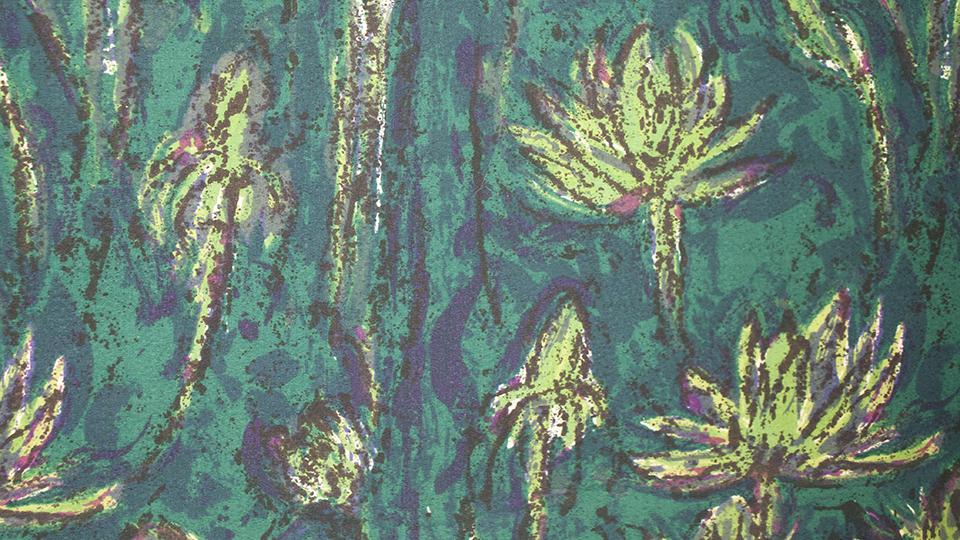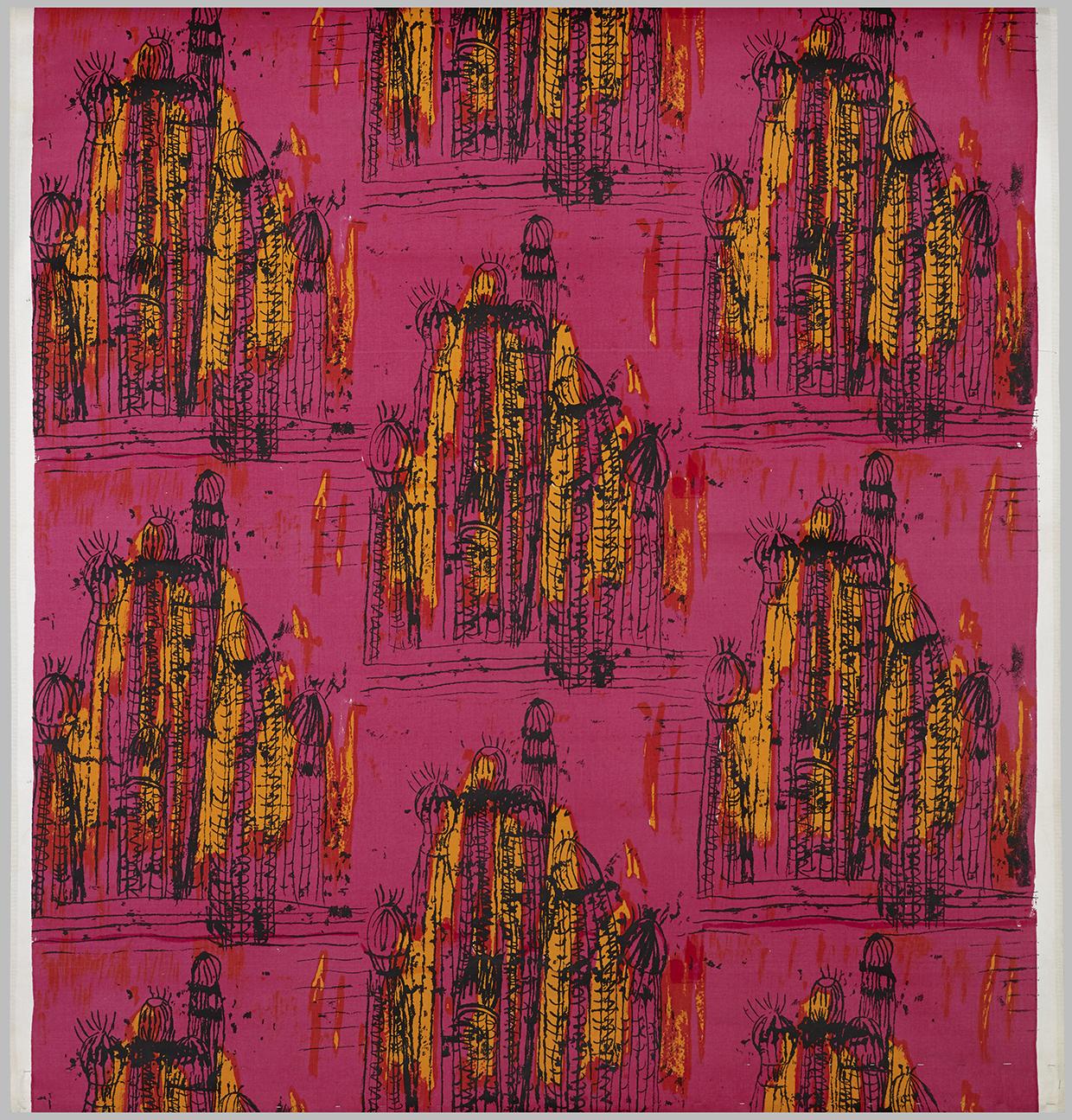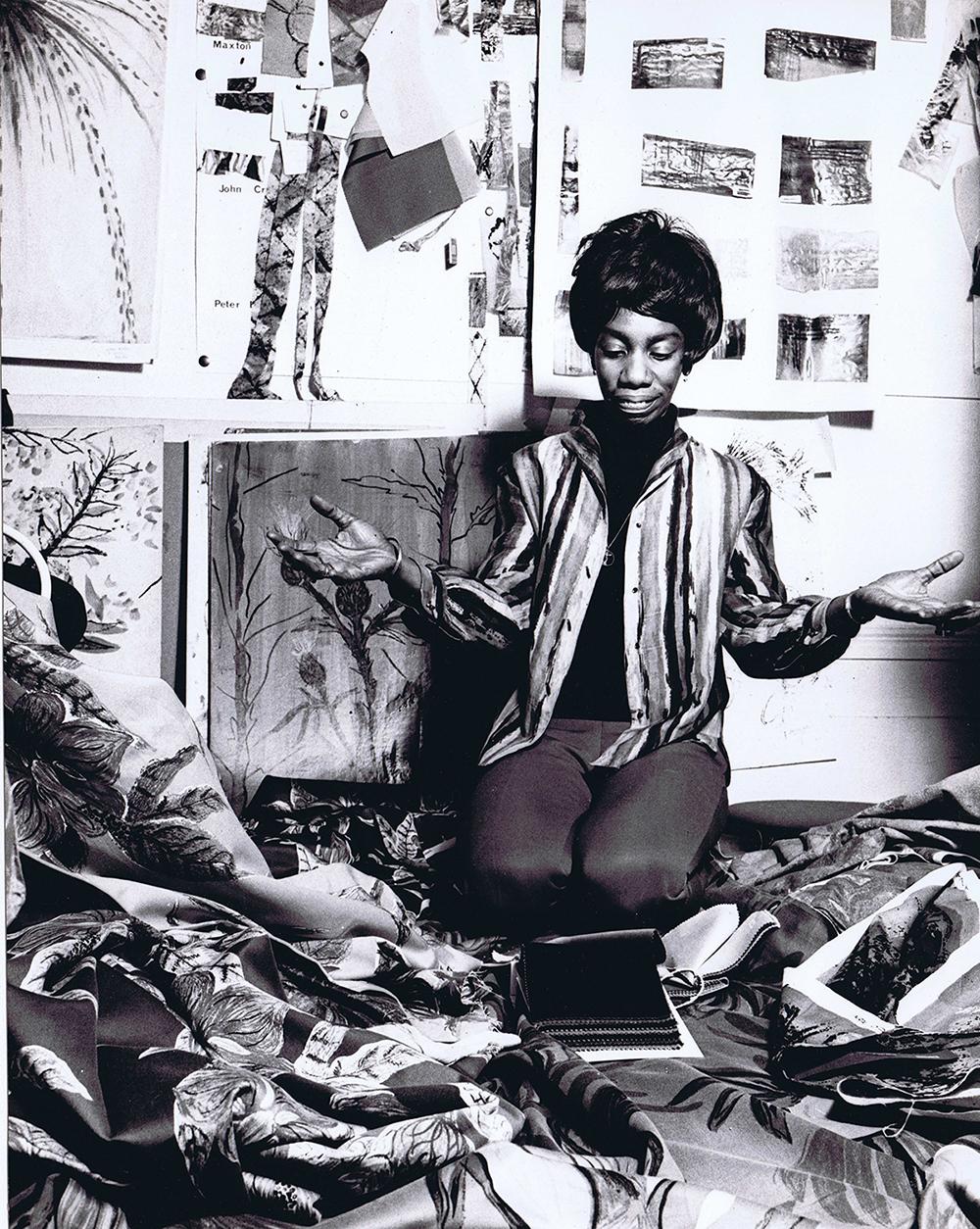Goldsmiths lecturer curates first retrospective of textile innovator Althea McNish
Primary page content
A Goldsmiths, University of London lecturer is bringing her expertise in 1960s Caribbean textiles and the women who made them to the curation of a retrospective of work by Althea McNish (1924 – 2020), one of the UK’s most influential textile designers.

Althea McNish: Trinidad, Heals, 1961
Running at the William Morris Gallery (WMG), Walthamstow London, from 2 April – 11 September 2022, Althea McNish: Colour is Mine is co-curated by WMG’s Principal Curator Rowan Bain and Rose Sinclair, a Goldsmiths lecturer in Design Education, PhD researcher, and textiles practitioner.
The major exhibition is part of a three-year research, exhibition and archiving project supported by the Society of Antiquaries through its Janet Arnold Textile award, a £25,000 grant awarded to Rose last year “to further in-depth study of the history of dress and the materials from which it is made”.
McNish, who was born in Port of Spain, Trinidad, and moved to the UK with her family in 1950, and is considered the first designer of Caribbean descent in the UK to achieve both national and international recognition in the field of textile design. Two days after graduating from the Royal College of Art in 1957, an interview with the Chairman of Liberty of London led to her graduation collection being bought on the spot, launching a career as a commercial freelance designer of bestselling furnishing and fashion fabrics for the likes of Liberty, Ascher, Dior, Conran, Cavendish Textiles, Heal’s and Hull Traders, as well as other companies both in Europe and the USA.
Drawing on extensive new research, the exhibition will explore McNish’s extraordinary career and her transformative impact on mid-century design, especially in her use of colour along with her enduring influence on design today.
Highlights will include items from McNish’s recently uncovered personal archive – much of which has never been seen before. Also on display will be examples of McNish’s original designs alongside her most celebrated textiles and wallpaper designs.
Rose Sinclair said: “Althea McNish’s work was pioneering in that it ignored the perceived boundaries of the time, that existed between fine art and manufactured textiles. McNish’s painterly textile designs took natural botanical forms to the edge of abstraction, she was able to utilise a riotous colour palette that cleverly overturned the staid rules of British post war design. Furthermore it was her technical mastery of the textile production process and her direct involvement in the process of making which gave her the freedom to create ever more technically complex prints, that further set her design works apart from her contemporaries.”
Althea McNish: Colour is Mine is sponsored by Liberty Fabrics, who will also be reissuing a capsule collection of Althea McNish’s original fabric designs in Spring 2022. Alongside will be a supporting education programme to develop the next generation of young textile designers. Something that Rose states also lay at the heart of Althea's work, encouraging the next generation, whether that was through her annual colour design award, or setting design briefs for local secondary schools, or working or mentoring students in further or higher education.
Rose Sinclair said: “Althea McNish presents something rare, a black female face in the professional arena of national and international textile history. Visitors to the exhibition will see how through design Althea became an emboldened individual who was able to take on challenges and use these to make statements about design, whether that was designing fashion fabrics for couture and furnishing fabrics for and everyday spaces, Wareite panels for the SS Oriana in 1960, creating the 'Batchelor Girl’ room space in shows such as the Ideal Home Exhibition 1966, to being a member of the Caribbean Artist Movement and curating the groups artist showcase for the seminal programme Full House for BBC2 in 1973. Perhaps following this exhibition people will take another look at furnishings and fashion fabrics and wonder why colour became such an important part of new design taste in post-modern society and think about the individuals, a design pioneer such as Althea, who made this happen.”
As a researcher, Rose Sinclair’s work has explored the development of Dorcas Clubs – female textile networks used by Caribbean women on arrival in the UK in the 1950s and 1960s as a catalyst for social and economic change.
Over the past few years, Rose has used the power of cloth to tell stories, engaging the public with textiles by ‘Windrush Generation’ women, and exploring the vital role of crafting in change and community.
In 2021 Rose appeared on BBC Four’s Craftivism: Making a Difference, and her talks, workshops, installations and other events at Goldsmiths, the V&A, the Museum of Home, Catford’s Broadway Theatre and more, have seen her receive a number of award wins for community engagement work.
Further information about Althea McNish: Colour is Mine is available on the William Morris Gallery website

Painted Desert, designed by Althea McNish for Hull Traders (1961) Screen printed cotton Object no: T.10266 Image: © the Whitworth, The University of Manchester
Original textile design by Althea McNish (c.1950s - 1960s). Courtesy N15 Archive: The Althea McNish Collection

Althea McNish in her studio, c.1970 Image: Bill Patterson, courtesy N15 Archive
.JPG)